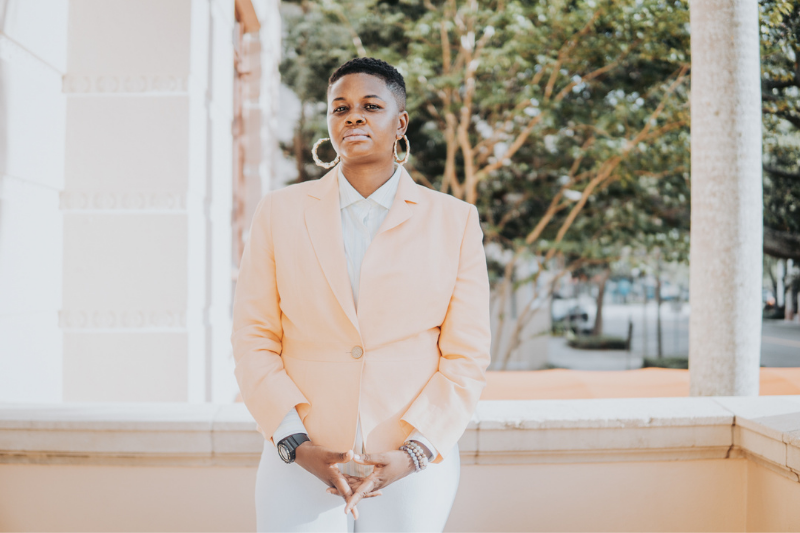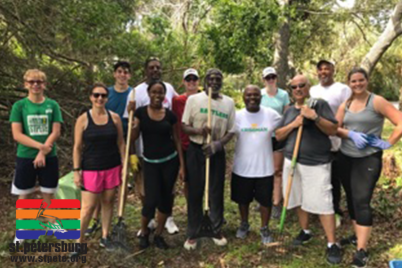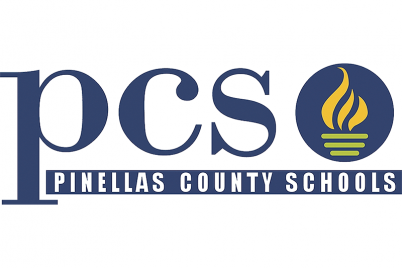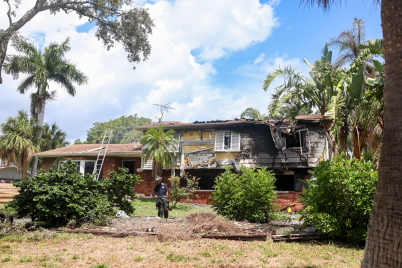‘Our plan is to start a conversation, distribute information and really engage the stakeholders,’ said community organizer Jalessa Blackshear about the July 12 town hall event to raise awareness about disaster preparedness in south St. Pete.
ST. PETERSBURG — After evacuating south St. Petersburg during Hurricane Irma in 2017, Jalessa Blackshear returned home to a refrigerator filled with spoiled food and no idea where to turn for resources.
“I didn’t know I could get a voucher from FEMA being a renter,” Blackshear said. “I even had access to food stamps and didn’t have any idea that I was eligible.”
Now Blackshear, who works as a community organizer, is helping professors from the University of South Florida’s St. Petersburg campus’ Initiative on Coastal Adaptation and Resilience (iCAR) organize a July 12 town hall in south St. Petersburg in the hopes of creating a network of assistance in the event of a disaster.
“Our plan is to start a conversation, distribute information and really engage the stakeholders,” Blackshear said. “Because when a disaster hits, you want people in those neighborhoods to know who they can turn to.”
The event is scheduled from 10-1 p.m. at the Enoch Davis Center, 1111 18th Ave. S and is being coordinated jointly with Pinellas County Emergency Management. Any member of the public is welcome, but organizers specifically targeted community leaders, as well as representatives from local businesses and faith-based organizations.
Their ultimate goal is to empower these leaders to become “storm teams” that can distribute information and serve as liaisons between government officials and community members in an emergency.
“They’re the ones people trust,” said Mary Burrell, who serves as whole community engagement lead at Pinellas County Emergency Management. “Community members already know them, so they’re going to turn to them in times of need. So if we’re connected to them, they know how to get in touch with us, and we know how to get in touch with them.”
At the event, organizers will learn more about the various programs available through the county to prepare for a disaster, as well as how to access resources after a disaster strikes. These include everything from mental health services, to legal aid, to disaster recovery resources.
Just as importantly, it will help participants connect so they can start building relationships and sharing information.
“I want to hear from them, ‘what is it you need?’” Burrell said. “Because every community is different. A lot of what we do is listen.”
The town hall is part of iCAR’s ongoing efforts to leverage the resources of USF to make them more available to marginalized communities, such as south St. Petersburg. Multiple studies have shown that those in Black and economically disadvantaged neighborhoods are disproportionally impacted by disasters such as hurricanes and have access to fewer resources.
“If you have three jobs, and you’re worried about paying bills, you don’t have time to worry about storms that may or may not happen,” said Barnali Dixon, executive director of iCAR and professor of geographic information systems and remote sensing. ”So there is a tremendous disconnect there.”
The event will also help introduce community members to iCAR’s Community Resiliency Information System (CRIS), an interactive platform that allows citizens from across St. Petersburg to track and monitor the impacts of climate change in their neighborhoods.
CRIS uses citizen engagement and crowdsourced data to gain insights into the local consequences of climate change. The system allows residents to input data related to issues such as flooding and power outages, which government officials and neighborhood leaders can then use to make decisions about policy and resource allocation.
The data also allow emergency managers to identify areas with concentrations of people who need transportation assistance or are reliant on power for medical needs.
Burrell said she hopes the town hall will also enhance awareness and engagement on the topic of disaster preparedness.
“Getting involved doesn’t have to mean being a shelter,” she said. “It could just be asking the people next door if they have groceries or they need water. Just staying aware and sharing information with your neighbors. There are so many different levels of being involved. I encourage everyone to just do something and be prepared.”
To learn more about disaster services available through Pinellas County Emergency Management, visit pinellascounty.org/emergency. To register for the town hall, contact Jalessa Blackshear at jdb6@usf.edu.








